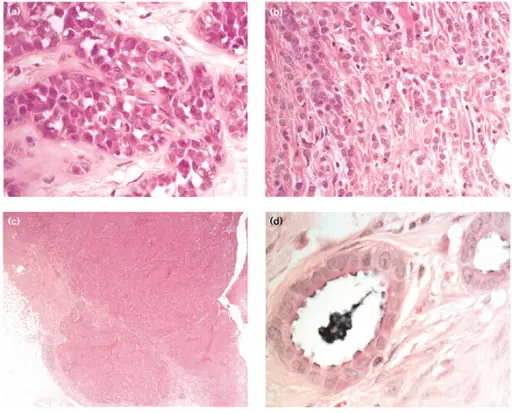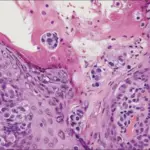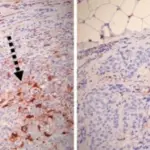Familial breast cancer is a cluster of breast cancer within a family.
What is the Pathology of Familial Breast Cancer?
The pathology of familial breast cancer is:
-Etiology: The cause of familial breast cancer are mutations in the high penetrance genes.
-Genes involved: p53, PTEN, ATM and STK11, BRCA1 and BRCA2, CHEK2, TP53, LKB1, CDH1, NBS1, RAD50, BRIP1, and PALB2.
-Pathogenesis: The sequence of events that lead to familial breast cancer is that the patient with one or more first-degree relatives with breast cancer in this familial breast cancer category has a substantial excess lifetime risk of breast cancer when compared with patients in the general population who do not have affected first-degree relatives.
-Morphology: The morphology associated with familial breast cancer typically is a breast lump.
-Histology: The histology associated with familial breast cancer shows a high-grade invasive ductal carcinoma of no special type and display minimal if any tubule or glandular formation, markedly pleomorphic nuclei, vesicular chromatin, prominent nucleoli, and high mitotic activity.
How does Familial Breast Cancer Present?
Patients with familial breast cancer typically are female with a family history of breast cancer.
How is Familial Breast Cancer Diagnosed?
Familial breast cancer is diagnosed through medical history, symptoms, physical exam, and laboratory test results, and biopsy.
How is Familial Breast Cancer Treated?
Familial breast cancer may be treated with prophylactic bilateral mastectomy which reduces the risk of breast cancer by almost 100% in mutation carriers.
What is the Prognosis of Familial Breast Cancer?
The prognosis of familial breast cancer is poor.



